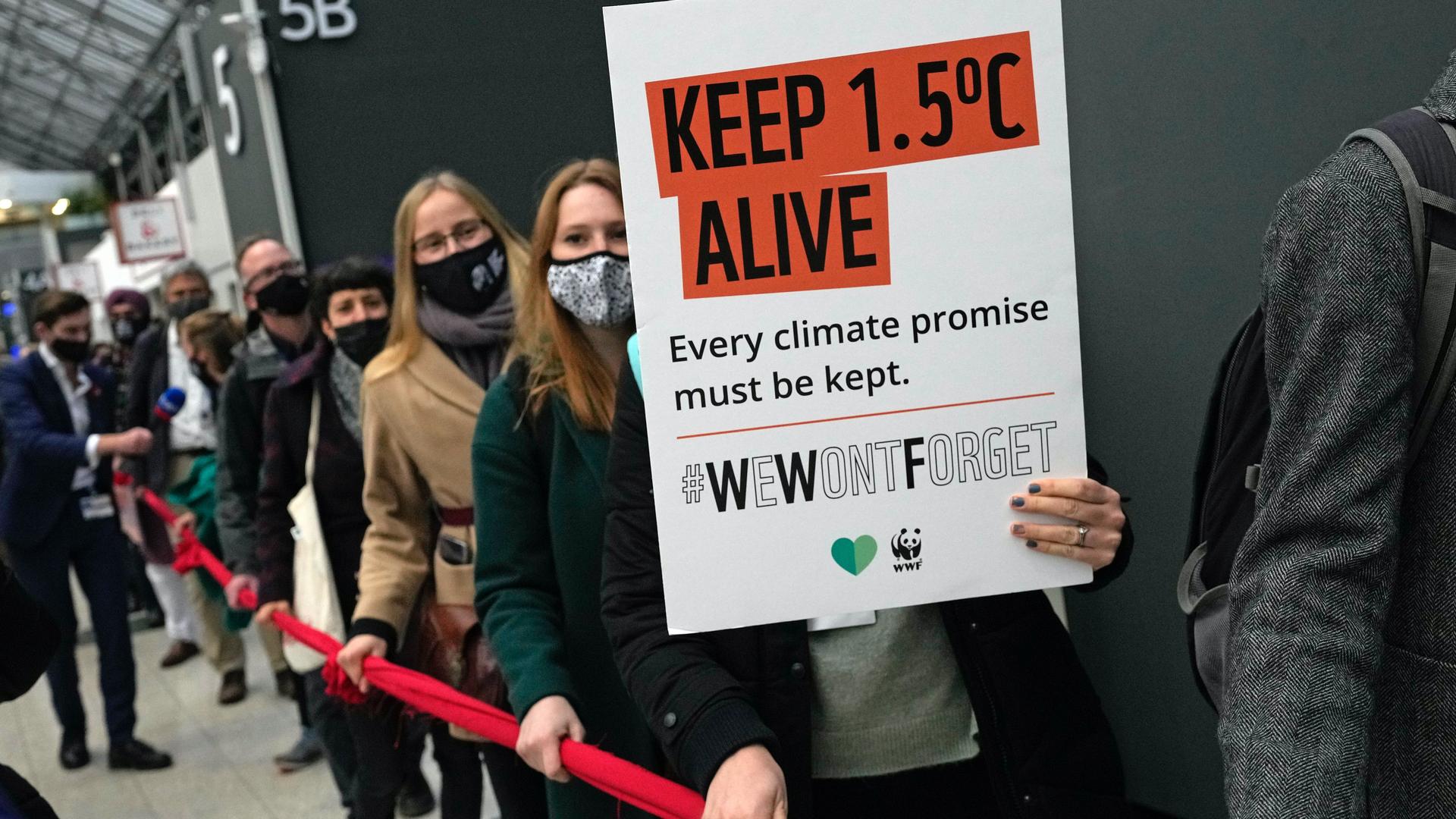COP26 made incremental progress but failed to deliver on ‘transformational’ change, negotiators say
The UN climate summit in Glasgow, Scotland, wrapped up this past weekend, issuing a set of agreements that use the strongest language yet to convey the gravity of the climate crisis.
Leaders also pledged more funding for adaptation and finalized long-awaited rules for carbon markets within the UN system.
Related: ‘A heavy load to carry’: A day in the life of a negotiator at COP26
But nearly every climate envoy or minister at the meeting left Glasgow saying more needs to be done — and fast.
COP26 President Alok Sharma acknowledged that in his closing speech: “I think today, we can say with credibility that we have kept 1.5 degrees within reach,” he said, referring to the goal to reduce greenhouse emissions to 1.5 degrees Celsius.
“But its pulse is weak. And it will only survive if we keep our promises. If we translate commitments into rapid action,” he added.
Targets submitted at this summit overshoot the 1.5-degree target — by a lot — but many of the sweeping changes that some negotiators hoped for didn’t bear out.
Countries pledged to come back to the table next year — four years earlier than the Paris Agreement called for — in the hopes that they can commit to bigger cuts.
The agreement included historic mention of “fossil fuels,” but India, backed by China, succeeded in changing the wording around it from “phase down” to “phasing out” unabated coal. Without a date attached to that goal, it’s unclear what impact the statement might have.
Last-minute negotiations like that, too, illustrate how challenging it is for the UN body to make the kinds of sweeping changes leaders say are needed to keep global warming at the safest possible levels.
Aminath Shauna from the Maldives was one of many representatives of vulnerable nations who expressed disappointment with the agreement’s ambition, or lack thereof.
“I’m very disappointed because we came here to get a concrete outcome. It’s not what we wanted and it’s not what is needed for the Maldives and small islands.”
“I’m very disappointed because we came here to get a concrete outcome. It’s not what we wanted and it’s not what is needed for the Maldives and small islands,” she said.
On finance, the final agreement expressed “deep regret” that the $100 billion pledged per year by 2020 wasn’t delivered to developing countries.
Related: Why COP26 is the ‘last, best hope’ for fighting climate change
To attempt to close that gap, developed countries said they would at least double the amount of financing earmarked specifically for adaptation by 2025, a particular request of developing countries. The agreement also set up a formal framework for setting new financial goals for 2025.
Tina Stege from the Marshall Islands said that this will continue to be a key issue for developing countries.
“We need to have some of this financing flow so that those countries like mine can make the transformations we need to make, particularly in terms of adaptation,” Stege said.
Developing countries didn’t get the funds for climate damages they asked for; instead, they got a promise for a “dialogue.”
Saleemul Huq, an adviser to vulnerable nations, said that opens the door for getting it on the agenda at the next climate summit in Egypt.
The summit did finalize one of the trickiest issues left from the Paris Agreement: the rules for carbon markets to work under the UN system.
Even still, Huq, one of the few people who’s attended every UN climate summit, said that this one failed to deliver the necessary ambition.
“Incremental progress is good, but incremental progress is simply not enough. What we need is transformational,” he said.
